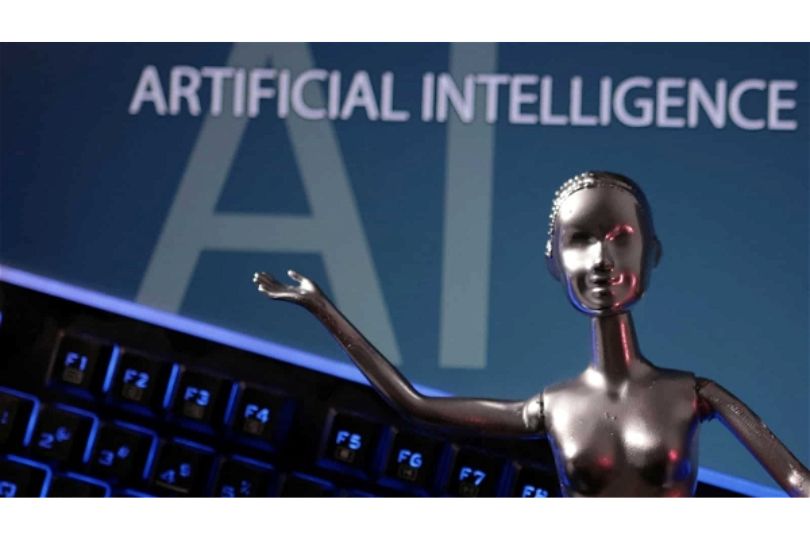Concerns and Excitement Surround AI-Narrated Books in India as Potential Impacts on Narrators and Reader Experience Emerge
According to the company's website, Apple Books promotes its digital narrators as a tool to assist independent authors and authors with smaller presses in releasing audiobooks without encountering obstacles like technical ambiguity and high expenses.on May 18, 2023

Madison talks about a man staring at a female. As Madison recounts the woman's looks and the man's emotions, her deep, textured voice rises and falls. She makes a tiny pausing motion to allow for a moment of tension before launching into the conclusion.
Madison is a "digital narrator" that Apple Books mainly developed for the fiction and romance genres; she is not a real person. Digital narrators on the list also include the laid-back and amiable "Jackson," the solemn and croaky "Helena," and the professorial yet dry "Mitchell."
According to the company's website, Apple Books promotes its digital narrators as a tool to assist independent authors and authors with smaller presses in releasing audiobooks without encountering obstacles like technical ambiguity and high expenses.
Even though Apple Books told consumers that it would "continue to grow the human-narrated audiobook catalog," the revelation caused unfavorable responses from many in the voice-acting industry as it circulated.
Although this may seem like a problem that only affects Americans or Europeans, digitized or AI-narrated books may soon be available for Indians' laptops and cellphones.
Ananth Padmanabhan, CEO of HarperCollins India, stated that they are now "sampling" AI narrators for audiobooks but have not yet discovered a voice they like. He thinks AI might speed up the production of audiobooks and reduce labor costs.
"I promise you. You won't be able to tell the difference," That's where it's going, Mr. Padmanabhan added. I don't believe you'll notice until I tell you, "This is AI-narrated" or "This is human-narrated" while we are listening to it. I don't think it will matter in non-fiction or elsewhere. I believe it will matter in literature where the story pauses and the narrator adds a lot more.
He continued by saying that AI narrators would also facilitate quicker book translation releases.
Concerns regarding the social effects of the acceptance of AI-narrated books among readers and writers exist. The apparent problem at hand is that voice actors are losing out on job possibilities, but these professionals are also concerned that audiobooks they have previously narrated may be utilized without their permission to train AI tools that may replace them.
Would Indian authors and consumers support AI-narrated novels in light of this?
Mimi Mondal, an Indian science fiction and fantasy author, expressed her excitement over the idea of AI-narrated books and the sci-fi future that is developing all around her. She won her second Nebula Award nomination for the Dungeons & Dragons collection Journeys Through the Radiant Citadel, and she described herself as "super excited" about it.
However, she acknowledged that if there was a human option, she wouldn't suggest or purchase such publications.
The possibility of generative AI: producing media from straightforward text cues
She said in an email to The Hindu, "Technically, it's not the fault of the AI; it's just that we're introducing it into such an unequal environment and turning it into yet another mechanism of tyranny.
Resh Susan, a writer and editor who reviews books on The Book Satchel's website, remarked that while she frequently listens to audiobooks, she considers AI/digital narrators "robotic and lifeless." She said that she wouldn't consent to evaluate books that had been read aloud by computerized narrators.
A digital narrator might cause her to miss the audiobook's finer details, which would alter her overall opinion of the book, Ms. Susan said in an email statement. "I do not find digital narrators good enough to compete with voice actors who are able to evoke emotions through their cadence and style of reading," she added.
"I hope we focus on how new technology can help us perform faster and easier and not look for ways where human work is undervalued and made replaceable," she added.
Ms. Susan was concerned that the digital narrator would also impact a book's popularity from the standpoint of a reviewer.
She cautioned, "A good book can turn into a mediocre audiobook in the hands of a bad narrator."
The irony of replacing human labor with AI was also brought up by Ms. Mondal, who noted that this would result in job losses for humans even as manufacturing costs dropped, lowering the price of books.
"I can understand how tiny publications and writers who are marginalized may profit from exploiting AI labor, and I don't blame them for seizing the chance. She remarked that the poorest people in our community shouldn't be expected to carry the burden of social justice.
Authors like me should speak out in favor of our colleagues who risk losing their jobs because we can do so without jeopardizing our careers. Therefore I will.



.jpg)






.jpg)

.jpg)
.jpg)
.jpg)
.jpg)
.jpg)
.jpg)










Sorry! No comment found for this post.